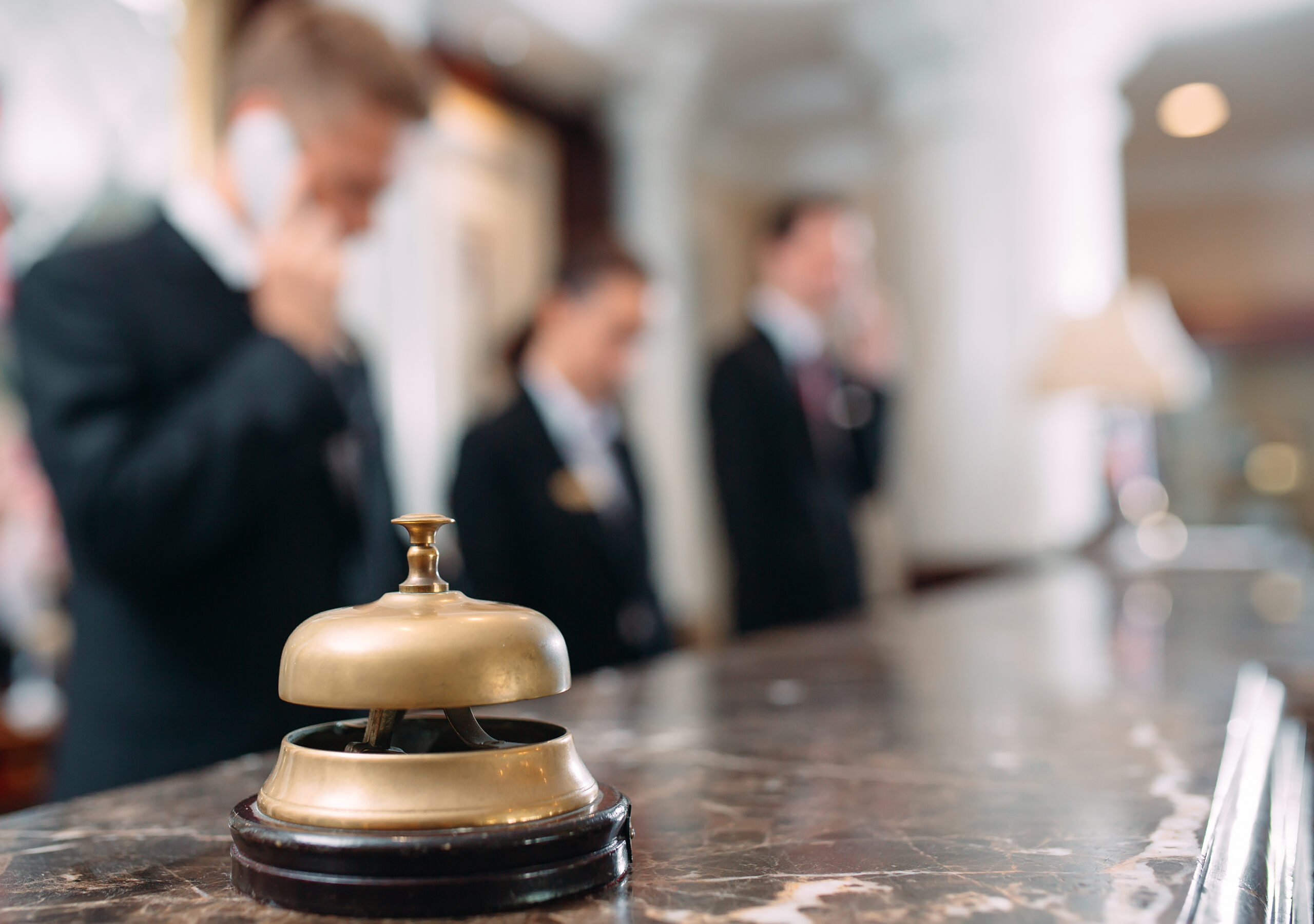5 reasons every hospitality organisation needs microlearning
What’s on the minds of hospitality leaders? Workforce versatility. Security and safety. Operational efficiency. Reinforcing operating standards. And, of course, offering a next-level guest experience.
But traditional learning methods aren’t helping. Lecture-based training is hard to schedule and requires significant equipment, location and personnel commitments. Even e-learning can be difficult to deploy across an entire hospitality workforce. In short: no one has time to sit through a 45-minute session when guests need help.

That’s why microlearning is such an advantage for the hospitality industry, and why more companies are leveraging it to train their workforce. This approach delivers training in bite-sized chunks that are easier to digest (and remember) and can be deployed in the flow of work, on devices employees are already using.
Microlearning has a key role to play in each of the crucial challenges that hospitality is looking to solve. Here are five reasons microlearning fits into the hospitality industry like freshly-laundered sheets:
1. Microlearning speeds up new hire onboarding…
As hospitality organisations grow and expand, new hires become a daily occurrence—and that surges during seasonal peaks. Hospitality businesses need a fast onboarding program to efficientlybuild these employees’ core skills, fast. But the true measure of onboarding effectiveness isn’t how quickly people complete the program; it’s how quickly new hires become reliable. As we all know: consistency is key in hospitality, and effective microlearning can drive that operational consistency at a foundational level.
Psychologist Hermann Ebbinghaus discovered that people forget more than 50% of newlylearned material in just 20 minutes. This percentage falls to 40% after nine hours, and 24% after 31 days if not reinforced. So if a new hire is pushed through the program but can’t retain any of what they learned, can you really say that the onboarding is complete?
Microlearning overcomes this challenge by dividing lessons into short, digestible chunks, and then reinforcing them through repeated exposure over time. This drastically improves long-term memory retention and gets workers up to speed faster than if they sat in a class for a day.
2. …And makes onboarding less disruptive
Whether you operate a hotel, cruise ship, resort or restaurant, you know: working in hospitality means your time is not your own. Anything your staff is doing could easily be interrupted by another, more urgent task or by a guest. That makes it tough to string together the necessary time to get new hires ramped up.
This chaotic schedule is exactly why microlearning is so well-suited for the hospitality industry. Most microlearning sessions take around five minutes to complete, which is perfect for staff with inconsistent, stop-and-go schedules, and for roles that require the right blend of on-device and in-person training or job shadowing. Best of all, the highly topical nature of these training modules makes it easy to pull up information in real-time to help with a customer inquiry.
Looking for more?
Get our full Ultimate Guide to Microlearning to learn how to build an effective microlearning strategy that unlocks measurable business value.
3. Microlearning boosts employee engagement
Research shows that engaged employees are 17% more productive, 21% more profitable and deliver 10% higher customer ratings than disengaged co-workers. And in the hospitality industry, where an engaged employee can truly make-or-break a guest’s experience, there’s no room for error.
Unfortunately, traditional learning methods are not driving engagement with hospitality staff. Days full of PowerPoint slides, classroom-style lectures or hours of e-learning courses are keeping staff glued to a computer screen instead of connecting with their colleagues (or engaging with guests). Instead, sessions should be targeted, focused and filler-free; and that’s the core of what microlearning is.
Microlearning-based training consists of short modules with clear goals and specific outcomes that do a much better job of capturing interest. It also makes use of different media—such as videos, text, quizzes, infographics and games—to provide variety and to cater to trainees with different learning preferences. Plus, the most effective microlearning programs use game theory to drive competition and motivation through points, leaderboards and even tangible rewards.
4. Microlearning delivers actionable data to drive informed decision-making
Perhaps one of the biggest advantages microlearning-enabled learning platforms have over traditional learning is the amount of data you can collect and use.
While traditional training methods might deliver completion rates, that doesn’t tell you much else. Where are there knowledge gaps? What regions are struggling? Where are there star performers that need to be fostered and prepared for leadership roles?
Microlearning captures hundreds of data points in each learning session that hospitality organisations can use to make data-based decisions, fast. This intel can provide guidance on everything from an organisation’s preparedness for an upcoming peak season, to possible reasons why online reviews suddenly started to wane.
5. Microlearning is built for rapid deployment
As we all learned over the past few years of lockdowns, safety regulations and compliance changes, there’s always something new to learn in the hospitality industry. Staff are so bombarded with new policies, seasonal promotions and tools that training materials can quickly become obsolete.
Fortunately, microlearning-based training is quick to build and deploy. You’ll be able to get all of your staff trained on new procedures in a timely manner and give them plenty of time to learn and adjust without impacting the customer experience.
These changes can then be folded into the overall program, layered into existing training or replace outdated programs in minutes.
Microlearning is transforming the guest experience
Hospitality brands all over the world are discovering the positive impact that microlearning is having on their employee onboarding process. Engaging and digestible content effectively imparts important training information to new hires. Microlearning’s flexible training schedule makes is easier to slip into the standard workday with less disruption to the guests. And the training program can be rolled out faster and updated more easily than legacy training curriculum.
In all, microlearning may be just what your brand needs to take the guest experience to the next level.